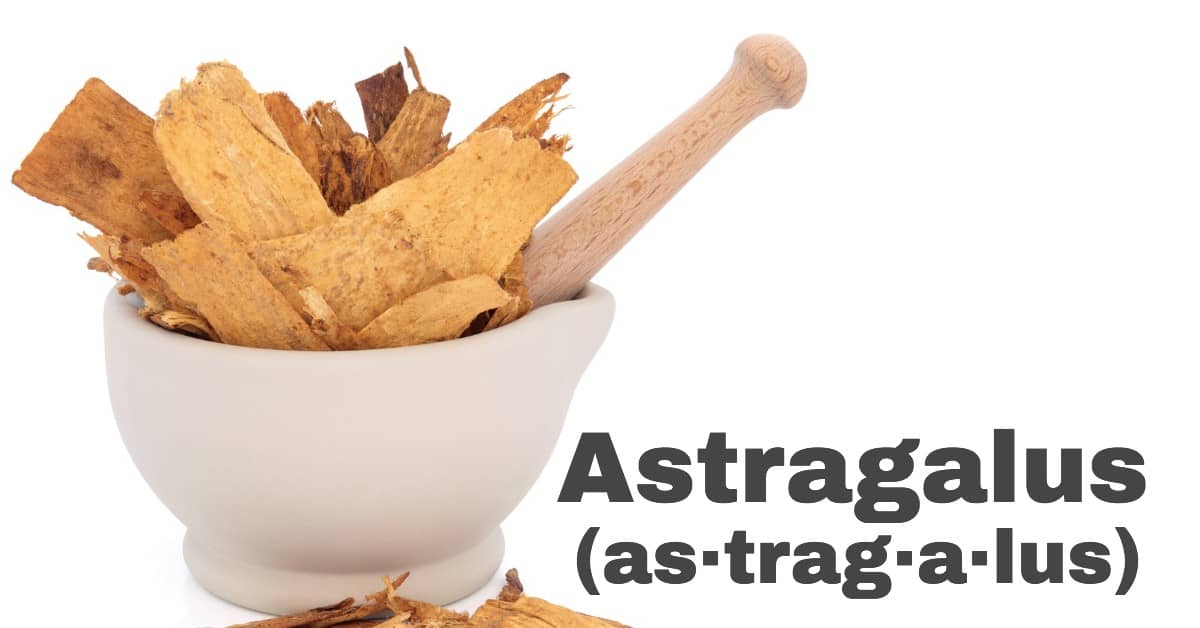
Age-Old Wisdom Could Extend Your Life in the 21st Century
The ancient Chinese must have been very smart.
Described in Shen Nong's Classic of Materia Medica sometime around 110 BC, a plant called Huang Qi was said to have anti-aging functions.
And now, over 2000 years later, cutting-edge science is showing they were right. It really does seem to have the ability to roll back the years.
In the West, this Chinese herb is best known as astragalus root.
A Popular Herb With Huge Health Benefits
Used in traditional Chinese medicine for thousands of years, the dry root of astragalus membranaceus has become one of the world's most popular herbal remedies.
After aging for four to seven years, the roots are ground up and made into extracts, tonics and teas.
More than a hundred different compounds with potential health benefits have been discovered in the whole root such as amino acids, trace elements, polysaccharides, saponins, flavonoids and phenolic acids.
The list of health properties found by researchers is considerable and includes abilities to:
- boost immunity
- promote wound healing
- protect brain cells
- stimulate metabolism
- improve insulin sensitivity
- reduce inflammation
- act as an antioxidant
- act against viruses
- protect the liver
- inhibit cancer cells
- protect the cardiovascular system
Shorter Telomeres Linked to Disease and Aging
Many scientists today believe the best way to ascertain healthy aging is by looking at the length of telomeres - the caps that protect the ends of chromosomes which shorten when cells divide.
The length of telomeres varies with each person. Those with shorter telomeres are thought more likely to suffer chronic diseases and to age faster.
For instance, the DNA telomere length of white blood cells (LTL) was shown to shorten with aging in 3037 people aged 79 and above, particularly in men.
LTL shortening is correlated with decreased life expectancy, dementia, and other age-associated diseases.1
A Potent Telomerase Activator
Fortunately, there is a solution. Telomeres can be lengthened by activating the enzyme telomerase.
And that's where astragalus comes in.
The herb is able to extend telomeres because it contains a group of compounds called astragalosides, one member of which is called cycloastragenol. Cycloastragenol was found by two separate research groups to be "a potent telomerase activator" in rodent studies.2,3
Other extracts of the dried root slowed down the shortening rate of telomeres in human lung cells by reducing DNA damage and improving the cells’ ability to repair themselves.4
A different extract purified from astragalus root was capable of "increasing average telomere length and decreasing the percentage of critically short telomeres and of DNA damage" in connective tissue cells of mice.
Researchers also found that dietary supplementation improved indicators of glucose tolerance, osteoporosis, and skin fitness.5
Another lab study which looked at the polysaccharide component of astragalus concluded that it had "significant antioxidant and anti-aging effects."6
As a powerful telomerase activator, and with its well-known and researched health benefits, astragalus holds out great hope that it can have rejuvenating effects in humans, just as the ancient Chinese believed.
Genesis, the telomere-boosting formula created by our sister company, Green Valley Natural Solutions, contains a clinical dose of the astragalus root, standardized to contain the most potent 'telomerase activator' 5% cycloastragenol (along with 7 other anti-aging ingredients.) Click here to read more about Genesis...
